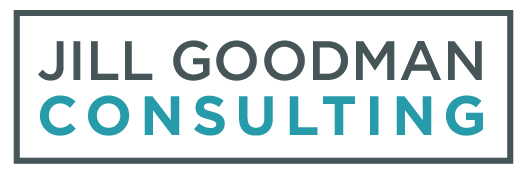Let's Get on the Same Page
Teachers and administration believe certain things about a child's achievement at school, and yet parents think something entirely different. I've seen and experienced this disconnect at schools as both a parent, a parent association leader and as a school administrator.
The disconnect spills over from the classroom and affects relationships in schools across the board. It affects parent attitudes about volunteerism, communication, and trust. It changes the teacher’s ability to make decisions that are best for the child without fear of repercussions from administration or parents. The disconnect is at the heart of risk to a school’s brand promise and perceived value.
The parent advocacy group Learning Hero commissioned a study in partnership with National PTA and with support from several foundations including the Bill and Melinda Gates Foundation. The executive summary gets right to the root of the issue:
Since 2016, we have conducted extensive research to understand how K-8 parents think, feel, prioritize, and talk about their children and their public schools to better equip parents with the information they need to help their children succeed. Over three years, one alarming finding has remained constant: Nearly 9 in 10 parents, regardless of race, income, geography, and education levels, believe their child is achieving at or above grade level. Yet national data indicates only about one-third of students actually perform at that level. In 8th grade mathematics, while 44% of white students scored at the proficient level on the National Assessment of Educational Progress in 2017, only 20% of Hispanic and 13% of African-American students did so.
Parents believe that teachers don't understand their child's capability, and teachers think parents are not in touch with the reality of their child's academic achievement. How did this happen? The study uncovered three key insights:
Parenting Styles Drive How Parents Engage in Their Child’s Education: Most parents believe they are involved in their child’s education as much as they should be, yet depending upon their parenting style, they have different thresholds for involvement, leaving teachers to navigate a range of approaches from parents.
Report Cards Sit at the Center of the Disconnect: Parents rely heavily on report card grades as their primary source of information and assume good grades mean their child is performing at grade level. Yet two-thirds of teachers say report cards also reflect effort, progress, and participation in class, not just mastery of grade-level content. Teachers have many more data points about student performance than parents do.
The Disconnect Is Solvable: Providing parents with a few already available pieces of information in one place in a clear, decipherable format leads many parents to reconsider their views about their child’s performance.
This study advocates for improved progress reporting that will bring all of the available data that teachers have into one easily understandable format for parents. The study further recognizes that grades have become inflated over the last several decades as teachers and administrators have taken blame and shame from parents and supervisors for giving students a grade less than a C. While I agree that improved reporting and information will undoubtedly improve this disconnect, I would advocate that independent schools need to go one step further.
Few teachers are trained in the delicate art of meeting the needs of parents. Parents are the independent school's customer, yet the students are the beneficiary of the program. All teachers and administrators have spent their career training and honing their craft, which is program delivery and effective interaction with students. Few, if any college classes or professional development opportunities prepare educators to communicate with parents in ways that both encourage support of students and recognize parent needs, assumptions, wishes, hopes, and anxieties. And yet, that is the task assigned to educators. I propose a radical shift.
Imagine a school that has a staff of highly trained experts dedicated to the "Parent Experience," a term Chuck English has coined. But, this team is committed to current parents in addition to prospective ones. I envision a scenario where parents contact their dedicated team member for all needs, from a question about which field the girls' lacrosse team is playing on this afternoon to a request to organize a meeting of all of their son's teachers to ensure that his individual education plan is mobilized. This system helps busy parents communicate with the school more efficiently and effectively.
Most importantly, all professionals at the school are now working to their strengths which will ensure that both students and parents are most likely to receive the experience that they were sold in the admissions process.
The author, Jill Goodman, is a consultant working with independent school leaders to advance their school’s mission, enhance their processes, and bolster their skills.



